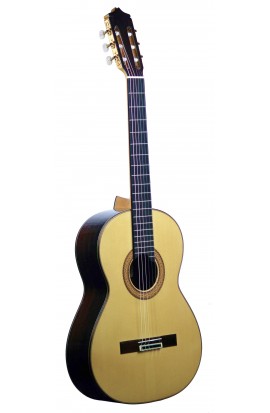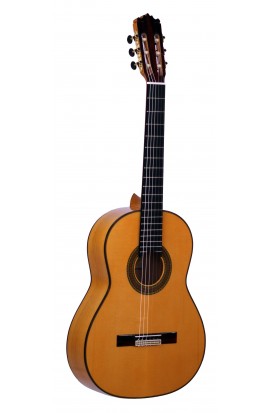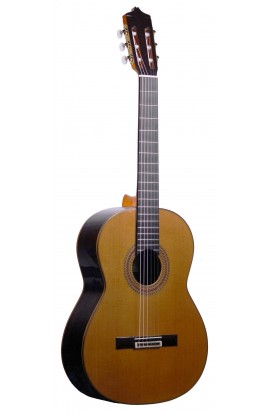Juan began his apprenticeship with his father in 1977, and his brother Antonio, who didn't continue the tradition, began his career. His beginnings were complicated, combining university studies with work in the workshop. His father, Juan Álvarez I, retired in 1977 and died in 2001, but Juan continued both the brand and the workshop on San Pedro Street, founded in the early 1960s.
No products
Product successfully added to your shopping cart
There are 0 items in your cart. There is 1 item in your cart.
Categories
Lastest Blog
Cremona
Cremona is an internationally recognized brand known for its string instruments, especially violins and classical student guitars, designed for...Antonio de Toledo
Antonio de Toledo is a renowned Spanish luthier, specialized in handcrafted classical and flamenco guitars made in the finest tradition of Spanish...Álvarez
Álvarez is a renowned Spanish guitar brand known for its handcrafted, high-quality instruments, especially respected in the flamenco and classical...Mayson
What if one could change guitar making concepts, concepts recognised for over 150 years by thousands of luthiers and players? For what seems...Martínez
Martinez is an international company run by luthier Mr. Alex Wang, specializing in high-quality, handcrafted classical guitars.
Manufacturers
Categories
Juan Álvarez

The origins of this prestigious Madrid-based guitar firm date back to 1945. “My father, who was studying to become a draftsman, and my uncle, who made furniture, started building their first guitars at the age of 14,” he recalls. Juan (the son), now 55 years old, joined the business when he was 17.
“I wanted to study, but my father, who had the mindset of a craftsman, wanted me to work in the workshop. So, we reached an agreement: I would help him in the mornings and study in the afternoons.” Juan recounts with nostalgia, “What my father didn’t know was that I loved repairing guitars, but I had such a bad relationship with him at that time that I couldn’t tell him.” His father passed away in 2001.
From the moment Juan Miguel Álvarez joined the instrument-making business, his father made him sign his work with his own name to distinguish his guitars from the simple "Juan Álvarez" models. “It took fifteen years until my father considered me a true guitar maker,” the luthier recalls. In 1992, “he commissioned me to make two guitars for two Korean concert guitarists and told me it was time to put his name on them. By then, I was capable of making guitars as good as his,” he adds.
The peak of their business came “in the late ’80s and early ’90s.” Juan remembers, “We couldn’t keep up with demand.” Compay Segundo and Eric Clapton were among their clients, although he prefers not to name more “so as not to forget anyone.” He can’t help but proudly mention that one of his guitars—“the one Eric Clapton played 'Tears in Heaven' with”—was auctioned at Christie’s for $253,900.
The quality of the instruments has improved over the years “thanks to new soundboard construction techniques, which affect 90% of the tone.” According to the expert, “In 1977, guitars were larger, more uncomfortable, with very deep basses and weaker trebles. Now, as soon as you play it, the guitar responds much faster, is more balanced in bass and treble, and has better tuning.”







recent comments